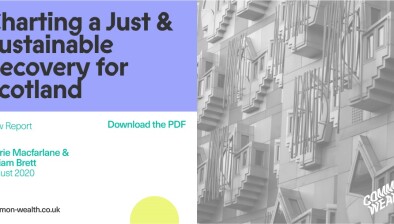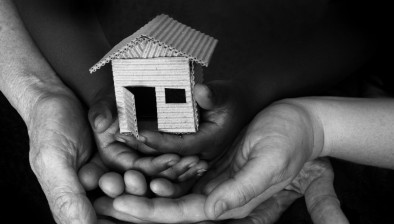Shelter Scotland calls for renter protection amid coronavirus pandemic
Shelter Scotland is calling for the UK Chancellor to boost social security payments to ensure the nation’s 340,000 private renters don’t end up mired in debt and at risk of homelessness.

The call comes after the RBS Purchasing Managers Index (PMI) for March reported that Scottish businesses are shedding jobs at the fastest rate in 20 years.
The housing charity is warning that a growing number of people will need to rely on welfare benefits for the first time to cover their basic costs. This alarming situation is already reflected in the latest Department of Work and Pensions data, which shows almost a million new claims for Universal Credit were made across the UK in the last two weeks alone – a tenfold increase.
With people unable to safely move to cheaper housing, Shelter Scotland is arguing current Universal Credit rates are still too low, despite a recent increase, to stop people falling massively behind on their rent.
The housing element of Universal Credit only covers the lowest third of market rents in an area, meaning those paying average rents will face a large shortfall. For example, the average rent for a two-bed property in Lothian is £900 a month while the Local Housing Allowance (LHA) rate for a two-bed home in the region is £822.73.
Claimants will also only receive LHA for the number of bedrooms the social security system says they are entitled to, making the shortfall even larger for those with more rooms or anyone paying an above-average rent.
The charity is also calling for the benefit cap to be lifted because as long as it is kept in place any increase in housing benefit will be cancelled out. Under the benefit cap housing benefit can be reduced to as little as 50p a month.
To prevent spiralling levels of debt, poverty and needless evictions further down the line, the charity wants the government to increase housing benefit, so it covers the average cost of local rents. It says this emergency measure is essential to help people through the financial shock caused by the virus.
Gordon MacRae, assistant director for communications and advocacy at Shelter Scotland, said: “The Scottish Government has rightly changed the law to ensure tenants cannot be evicted at the first sign of rent arrears. However, thousands of renters will be in dire straits further down the line without more support from the UK Government.
“As renters lose their jobs and see their incomes hit, many will have to rely on the welfare safety net for the first time.
“We’re facing an onslaught of people suddenly unable to afford their rent, at a time when people need to stay put and cannot safely move to a cheaper home. To avoid spiralling debt and needless evictions when we come out of lockdown, the government must increase the housing element of Universal Credit so that it covers the average cost of local rents.”
Samantha’s story
Samantha and her partner live with their toddler son in Dundee. The rent on their two-bed property is £625 a month but Universal Credit housing element is only £444 leaving them with a shortfall of £181 a month. Their self-employed income has fallen to zero as a direct result of the coronavirus outbreak but their landlord is still seeking the full rent every month.
Samantha said: “The coronavirus outbreak has had a massive impact on our income. Our earnings have fallen to nothing. We have been self-employed for less than a year so we don’t qualify for support from the Government. We were already receiving Universal Credit but it doesn’t make up for the loss of our earnings. We were just getting on our feet so this is a huge setback.
“We’ve cut back on our bills and we are getting help from family for which we are really grateful but we feel like a burden and we know that can’t go on forever. It’s worrying because we don’t know how long this will last.
“If Universal Credit covered the cost of our rent it would get the landlord off our backs and be a lot less pressure.”
- Read all of our articles relating to COVID-19 here.







